Last updated on March 30th, 2024
Featured image: Online harassment is on the rise, which has emotional and psychological consequences / Photo from Envato
Uber’s first-ever head of women’s safety is on a mission
By Carolyn Ray, Editor, JourneyWoman
Sometimes it takes an outsider to create meaningful change. When I met Tracey Breeden at Women’s Travel Fest in March 2022, I recognized the characteristics of a disruptor: bold, committed and unapologetic.
Trained as a police officer, Breeden has built a reputation for innovative approaches. In 2016, she was recruited by Uber as its first-ever Head of Women’s Safety and Gender-Based Violence Operations. At Uber, Breeden advised on some of Uber’s most notable safety products like Safety Center, Ride Check, and Emergency Button. In 2019, Uber released its first safety transparency report, which disclosed that drivers and passengers had reported nearly 6,000 instances of sexual assault in 2017 and 2018.
“When I came to Uber there wasn’t a whole lot of trust and safety work being done, and they didn’t define safety the way that I define safety,” Breeden says. “They were very focused on what was being reported to them but didn’t really have dedicated safety personnel, dedicated safety teams. When you say safety, most people think of physical safety and that’s all they think about, they don’t think about the fact that safety is also connected to emotional and psychological safety.”
Five years later, in September 2020, Breeden moved over to the Match Group as its new VP, Head of Safety and Social Advocacy to tackle the broader issue of online harassment. Breeden oversees Match Group’s trust and safety policies and initiatives across its global portfolio of 15 dating products, including Tinder, Silver Singles, Match, and Plenty of Fish.
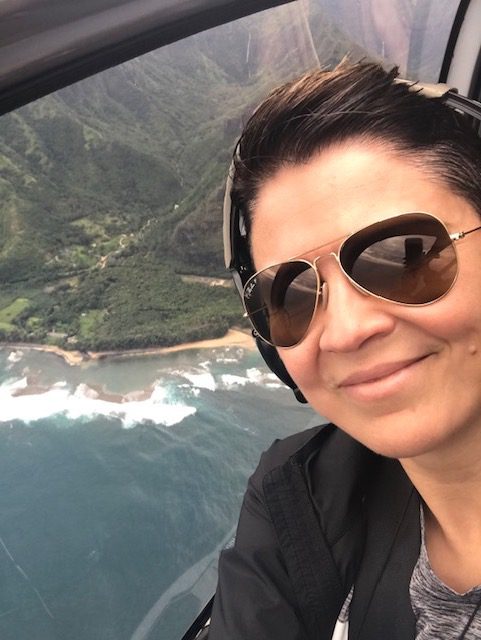
Tracey Breeden, VP of Safety and Social Advocacy at Match Group, in a helicopter
Six Online Safety Tips for Women
Women’s safety expert Tracey Breeden shares her top online safety tips for women to stay safe in the digital world.
Data shows online harassment is intensifying
According to a Pew Research, The State of Online Harassment survey of U.S adults in September 2021, 41% of Americans have personally experienced some form of online harassment in at least one of the six key ways that were measured. And while the overall prevalence of this type of abuse is the same as it was in 2017, there is evidence that online harassment has intensified since then.
- Four-in-10 Americans have experienced online harassment;
- Growing shares of Americans report experiencing more severe forms of harassment, which encompasses physical threats, stalking, sexual harassment and sustained harassment;
- Women are more likely than men to report being sexually harassed online (16% vs. 5%) or stalked (13% vs. 9%)
- 73% of women are abused online worldwide, according to the UN Broadband Commission’s 2015 report. More than half (52%) of the women polled disagree with this statement: “The Internet is a safe place to express my opinions.”
Breeden’s scope goes beyond dating apps
With a mandate to build broad-based safety programs, Breeden sees her role as going beyond dating applications.
“I’m dealing with real-life safety and online safety, trying to prevent sexual assault, hate speech, discrimination and harassment,” she says. “What I’ve found is that because you don’t have that physical component in the online world, it’s not taken as seriously. People don’t always understand the emotional and psychological harm that can come from engaging in a digital space. At Match, I’ve been able to come in and say that these are serious issues, they do impact women in a very powerful way, and we can and should be doing more.”
Drawing on her experience as a law enforcement officer with the California Highway Patrol, the Tulsa County Sheriff’s Office and Glendale, Ariz.’s police department, Breeden has leaned into partnerships with over 200 women’s safety groups and advocacy organizations and partnerships with 35 gender-based violence prevention organizations globally, including RAINN (Rape, Abuse & Incest National Network) and NO MORE, a public awareness initiative to end domestic violence and sexual assault.
NO MORE provides a Global Directory, which is a first-of-its-kind global resource for domestic and sexual violence support services in 205 countries and territories around the world. You can find it here.
“The Directory contains up-to-date contact information that is regularly checked and audited, ensuring that the information and resources are current,” says Pamela Zaballa, CEO, NO MORE. “Since our launch in March 2021, we have seen visitors from over 45 countries and territories, and that number is steadily increasing. The Directory was launched at a critical moment, when domestic and sexual violence cases spiked around the world during the COVID-19 pandemic. As this resource continues to grow, we will work to connect survivors with lifesaving resources, and build a stronger global community of individuals and organizations that are working to end violence.”
“The only way we can effectively address these things in this digital world is through working with communities,” Breeden says. “That means working to hear from our consumers and that means taking steps and efforts to hear from them. That means working in partnership with the experts in the space. That means women’s groups, that means law enforcement and working in partnership with them to help understand not only the issue, but how do we effectively address the issue together. Education is one of the most effective ways of disrupting harassment.”
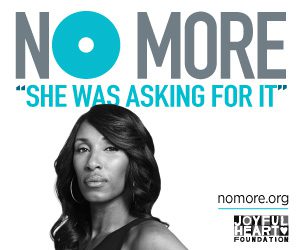
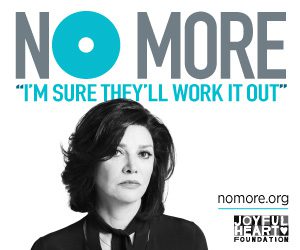
NO MORE provides resources and tools to learn about and report harassment. Find them here.
How has the pandemic affected women’s safety?
As solo travellers, we know how important safety is, both at home and when we travel.
- In our 2021 JourneyWoman Solo Safety Survey, 88% of women travellers say they have felt threatened or unsafe and 81% say safety is part of their travel planning process (Source: JourneyWoman Solo Travel Safety Survey, July 2021).
- 1 out of every 6 American women has been the victim of an attempted or completed rape in her lifetime and 9 of 10 victims of rape are female (Source; RAINN)
- The rate of sexual assault against Indigenous women is approximately three times higher than among non-Indigenous women (Source: Canadian Women’s Foundation)
- The rate of sexual assault against people with disabilities is about two times higher than those with no disabilities (Source: Canadian Women’s Foundation)
- 12% of women travellers have been physically attacked or threatened while travelling. Of these, 38% were able to defend themselves; 16% had help from another person and 13% were not able to defend themselves (Source: JourneyWoman Solo Travel Safety Survey, July 2021).
“The impact of COVID-19 on domestic violence was immediate and urgent. We worked quickly with other organizations to raise awareness, activate bystanders, and increase access to resources for victims, through campaigns like Listening From Home. Domestic violence increased by 8% in the United States following lockdown orders. According to the United Nations, the pandemic is likely to cause a one-third reduction in progress towards ending gender-based violence globally by 2030.
Despite this surge, in many countries, resources were diverted from violence against women in favor of immediate COVID-19 relief. Following lockdowns, victims who had been trapped at home with their abusers were finally able to seek help, causing further increases in reporting. It is our duty, through the NO MORE Global Directory, to ensure that victims around the world have quick, easy, reliable access to services, no matter where they live. ” – Pamela Zaballa, CEO, NO MORE
We want to hear your views on women’s safety.
Look for our second annual Women’s Safety Survey in June.
New technologies are improving online safety
Breeden believes that technology has a role to play in digital safety. She points to machine learning, a form of artificial intelligence that recognizes certain words and phrases, as a way to prevent harassment.
“We’ve created machine learning models to actually identify harassing language that stops the message before it’s sent. It asks the person who’s sending it, “Are you sure you want to send this?”
Match also uses photo verification features that allow users to know if pictures are real, updated, from 20 years ago or recently. There is a ‘liveness check’ where the software compares the person to the photo, makes them turn their head, and do different movements.
Working with engineers and product developers, Breeden is influencing how products and services are created with safety in mind. She also helps technologists think about how a product can potentially impact women, people of colour or marginalized communities.
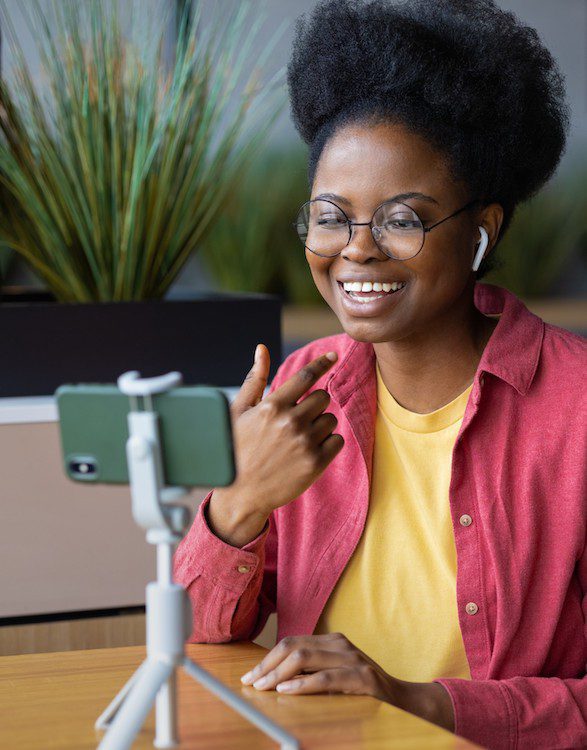
As online dating gets more popular, so do instances of online harassment / Photo by MyJuly on Twenty20
Travel Safety Tips for Women From a Self Defense Expert
As part of our #TravelReady series, join us on April 7 for a refresher on solo travel safety for women from self-defense expert Lorna Selig.
Better reporting processes are needed
“I feel like I’ve really been given a unique opportunity to really create safety in a space that people really have never even known how to address, or how you go about doing it,” she says. “And part of that is educating people, making them aware of things that they may not be thinking about, empowering them with tools, empowering them with education.”
“It’s not their fault and they’re not to blame when anything like that happens,” she says. “We all know people who scams have happened to. We need to encourage people to follow their intuition but also to not feel shame in reporting so that we can take action.”
Breeden knows that while harassment can’t be completely stopped 100 percent of the time, but at the end of the day that person on the other side deserves to be treated with empathy, understanding and compassion.
“One of the most important things we can do is improve the reporting process and make sure that women are getting the response that they deserve,” she says. “I understand why women don’t report because they really don’t trust or believe that anything is going to be done. They know that nobody can eliminate all the harm that is out there, but they want to know that we’re doing everything we can in our space to help prevent it and disrupt it.”
According to NO MORE, worldwide, almost one-third (27%) of women aged 15-49 years who have been in a relationship report that they have been subjected to some form of physical and/or sexual violence by their intimate partner. However, there is a significant lack of research on domestic and sexual violence in later life on a global scale.
NO MORE’s Zaballa says: “This is a result of the systematic exclusion of older victims from domestic and sexual violence discourse due to exclusion from global datasets and the tendency to frame the issue as only “elder abuse.” But domestic and sexual violence against older individuals is extremely prevalent.”
Zaballa cites data from in the UK Femicide Census, which says that 11.5 percent of women killed by a partner in England, Wales, and Northern Ireland were found to be aged 66 or over. In the U.S., a study found that lifetime intimate partner violence for women aged 65 and older was 26.5%, with 18.4% experiencing physical or sexual violence. A study of 5 European countries found that 28% of older women experienced some form of abuse in the previous year, with emotional abuse being the highest-reported category.
“Older women certainly experience domestic and sexual violence, and should be more prominently included in dialogue around awareness and prevention,” Zaballa says.
“We have an opportunity to help change these systems, help influence them in a positive way and technology is a system in and of itself. So there’s the ability to leverage our system, to leverage our skill, our scope, our technology partnerships to really shift how that has been and how violence against women has been treated. It just hasn’t been handled the right way throughout systems, whether it’s policing, government, corporations. We see it in our society over and over again just being mishandled and women just being failed.”
Resources
Here are some resources where you can find help for physical and online harassment, or to learn more.
More on Safety
Staying Safe in a Digital World: How Women Can Protect Online Privacy
Advancements in artificial intelligence (AI), facial recognition, wearable technology and apps are making it easier for strangers to learn personal details about us – without our consent.
When Something Goes Wrong: What to Do if You’re Injured While Travelling
Anything can happen on a vacation. Here are some first-hand tips for women to plan for an unexpected injury.
JourneyWoman Webinar: Women’s Safety and Cybersecurity on November 19, 2024
Join our panel of experts on November 19 to learn how to protect yourself against cybersecurity at home and while traveling.

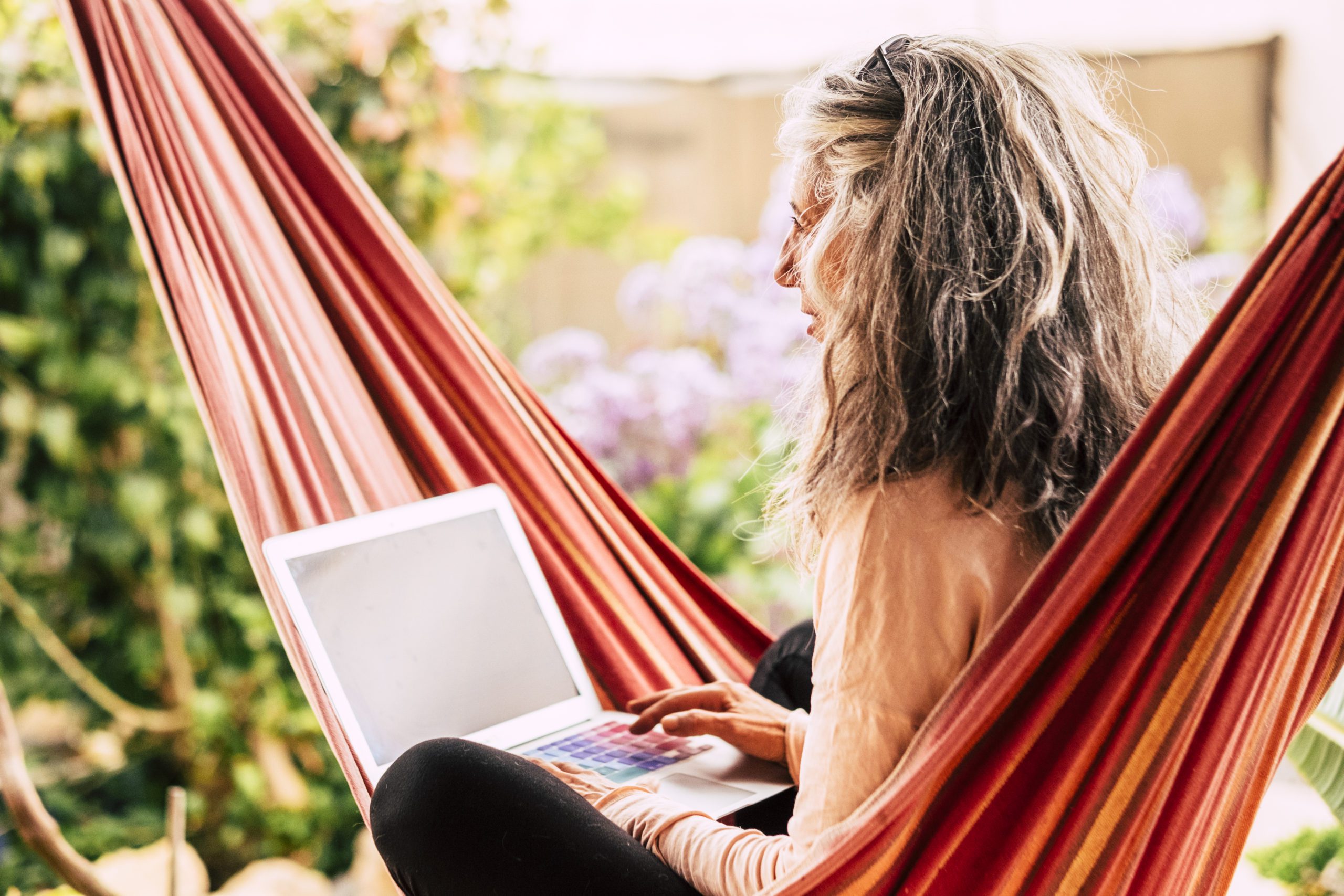

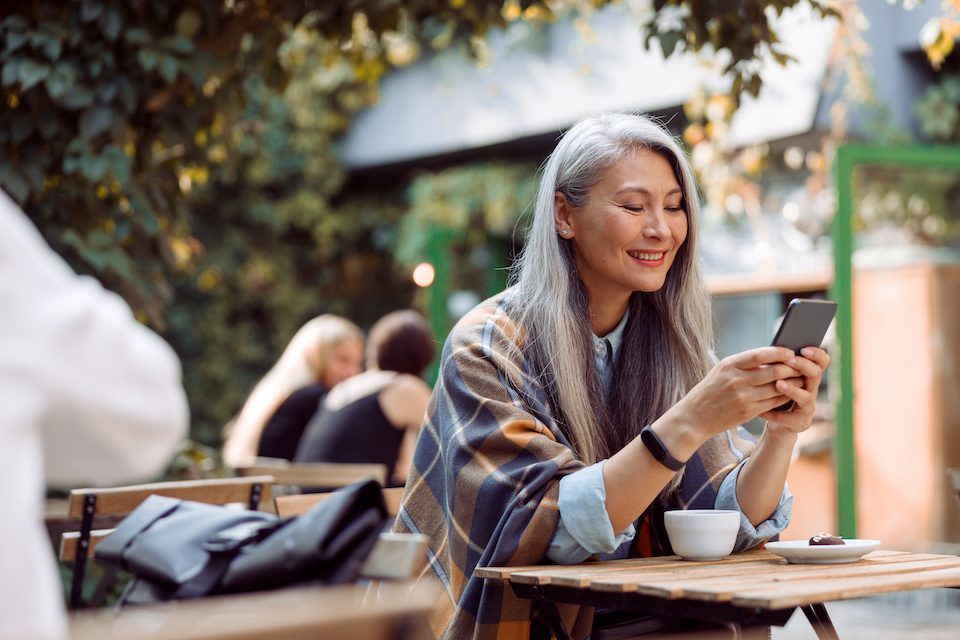




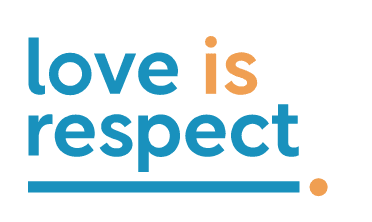
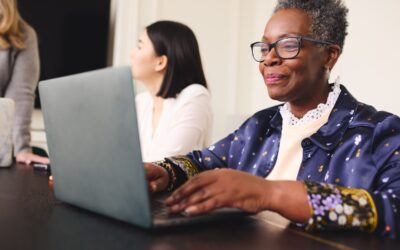

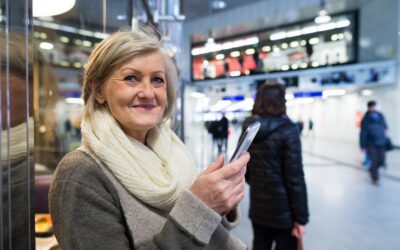
0 Comments
We always strive to use real photos from our own adventures, provided by the guest writer or from our personal travels. However, in some cases, due to photo quality, we must use stock photography. If you have any questions about the photography please let us know.
Disclaimer: We are so happy that you are checking out this page right now! We only recommend things that are suggested by our community, or through our own experience, that we believe will be helpful and practical for you. Some of our pages contain links, which means we’re part of an affiliate program for the product being mentioned. Should you decide to purchase a product using a link from on our site, JourneyWoman may earn a small commission from the retailer, which helps us maintain our beautiful website. JourneyWoman is an Amazon Associate and earns from qualifying purchases. Thank you!
We want to hear what you think about this article, and we welcome any updates or changes to improve it. You can comment below, or send an email to us at [email protected].